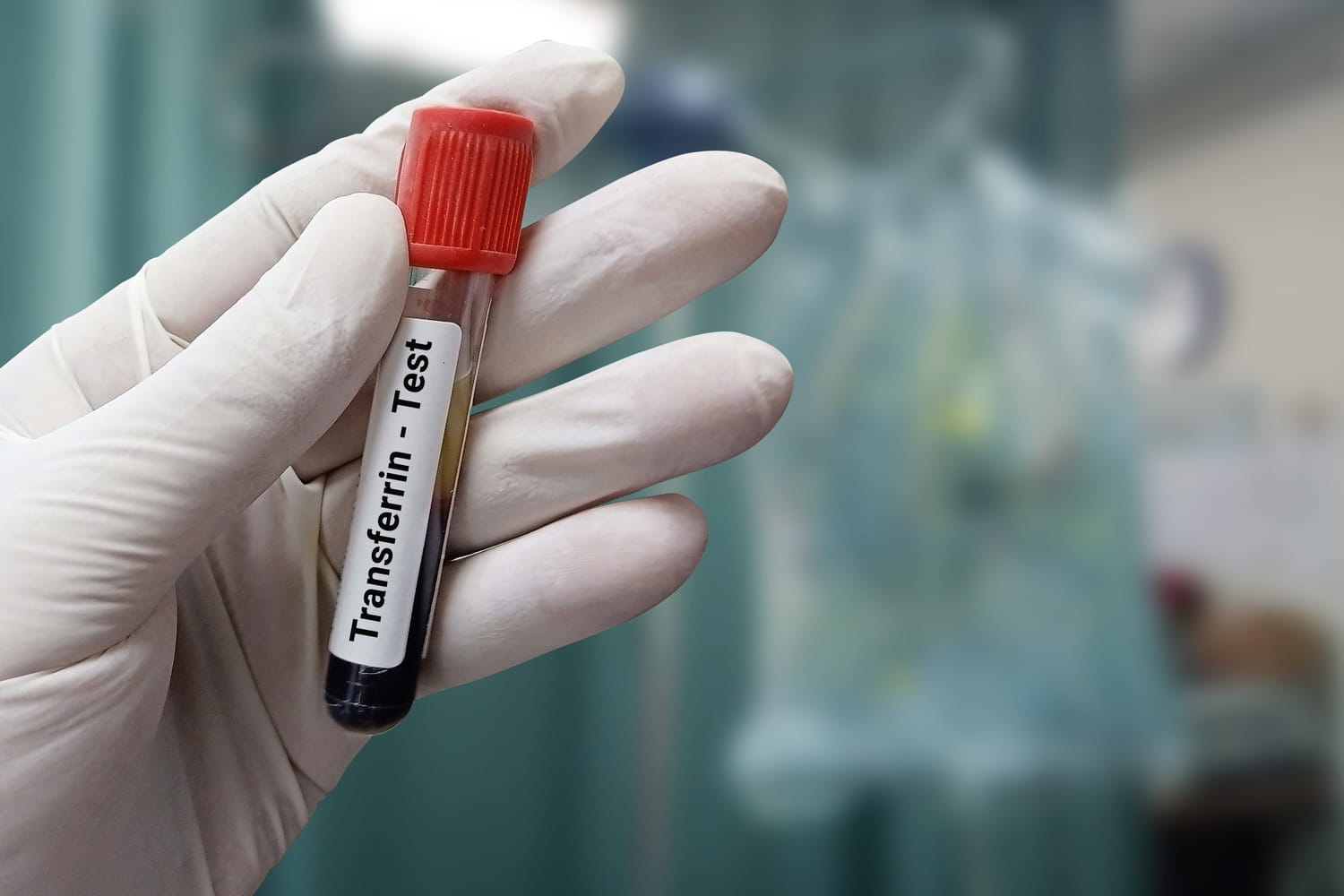It is a protein that regulates iron delivery.
Secreted by the liver, transferrin is a protein whose role is the transport of iron to the bone marrow, the site of production of red blood cells. It also transports iron to different organs. Transferrin testing helps doctors learn more about the patient’s iron metabolism. It is often associated with the measurement of serum iron (iron in the blood). “In deficiency anemia, it is not transferrin that is low, but its saturation coefficient”specifies Doctor Sophie Bauer, president of the SML.
It is the laboratory which gives the reference values, according to the techniques used. Generally, a transferrin saturation coefficient is considered low if it is less than 20% in adults. “A low coefficient means a lack of iron. Transferrin can be lowered in the event of malnutrition or hepatocellular insufficiency due to lack of production, or be lowered by regulation in the event of iron overload. If the subject has anemia, we often order a blood count with analysis of the red blood cells, to find out if they are too small or too large. explains the doctor.
If the red blood cells are large, a lack of vitamin B12 is often associated. Vitamin D deficiency can accompany iron deficiency, but this association is not systematic and is not directly linked to iron absorption. Anemia revealed by low hemoglobin sometimes indicates an inflammatory disease or intestinal malabsorption. It can be the result of hemorrhage. Anemia in children can be linked to malnutrition. Low transferrin can also be caused by hepatocellular insufficiency, such as liver cirrhosis or hepatitis.
Certain foods are rich in iron, knowing that iron of animal origin is better assimilated by the body. The best sources are black pudding, offal and meats. Let’s not forget that vitamin C promotes iron absorption. To avoid anemia, you can eat fresh, seasonal fruits (citrus fruits, berries, kiwi, etc.). You can supplement your intake with plant-based iron, which we find in lentils, green leafy vegetables or dark chocolate. Supplementation is prescribed by the doctor only in cases of diagnosed anemia. A pregnant woman with a severe deficiency can be treated with iron injections given in a hospital setting.










